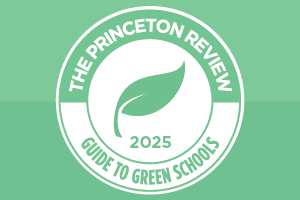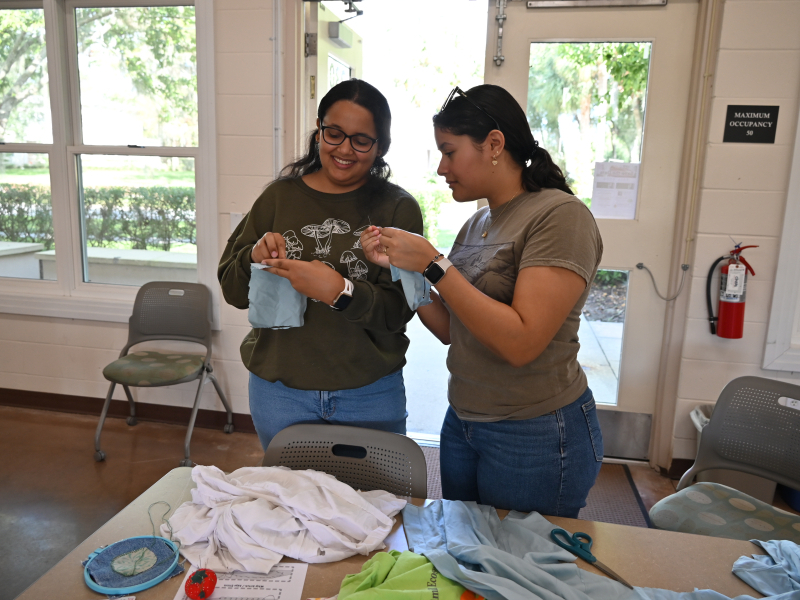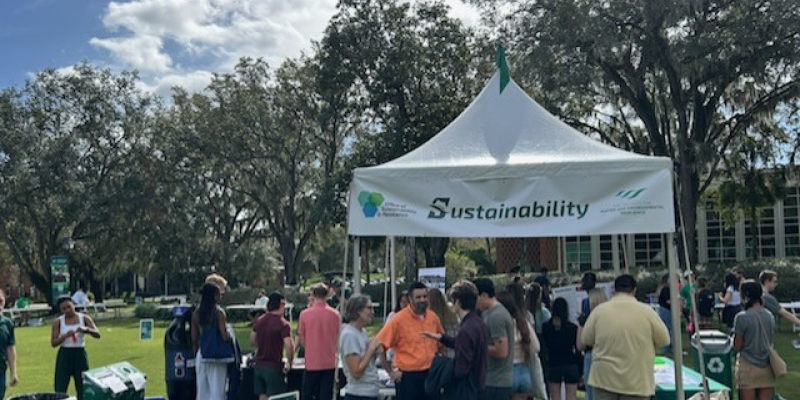
Sustainability at Stetson
Sustainability is based on the principle that everything we need for our survival and well-being depends, either directly or indirectly, on our natural environment. To pursue sustainability is to create and maintain the conditions under which humans and nature can exist in productive harmony to support present and future generations. Stetson is committed to a culture of sustainability on campus by instilling sustainability as a core individual value while aligning sustainability principles with campus goals, objectives, and activities.
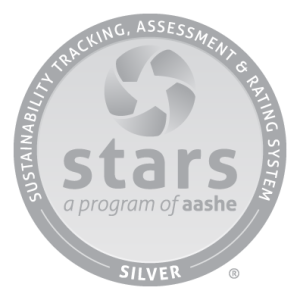
Green Hatter
Learn more about becoming a Green Hatter at Stetson University. From joining Environmental clubs to engaging with the Green Guide, there are several ways to get involved in sustainable actions on campus.
Green hatter
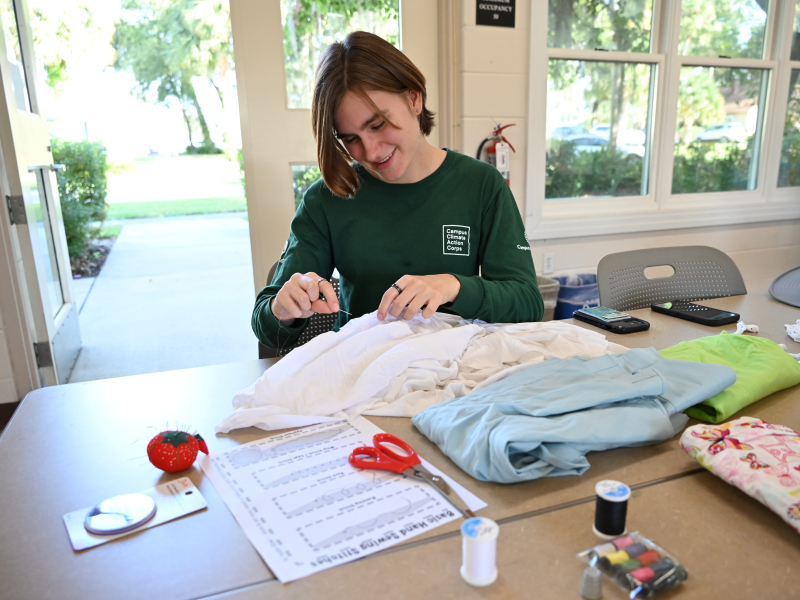
Environmental Fellows
The Environmental Sustainability Fellowship is an opportunity for students to get involved at Stetson University by helping to promote its core values, while also making the campus a more socially, economically, and environmentally conscious place.
environmental fellows

Sugeeth Sathish ‘25
Initiatives
Stetson University is one of the Charter Signatory members of the American College and University Presidents Climate Commitment (ACUPCC). In June 2007, then Stetson University President Doug Lee signed the ACUPCC, and since that time our goals have been codified in the Stetson Environmental Stewardship Plan that was endorsed and put into action by our Board of Trustees. That plan includes targets toward achieving our goal of being carbon neutral, action steps, periodic measurement and reporting of our results. Stetson University follows an Energy and Water Conservation Policy, requiring our campus communities to support efforts to reduce water and energy consumption by 18 percent.
One of the primary duties of the Environmental Fellows is to manage a Revolving Green Fund (RGF) that generates $30,000 annually from a $5/semester student fee. The purpose of the RGF is to be a source of internal capital revenue to capitalize on long-term sustainability projects that generate measurable cost savings. The return on investments from these projects are then reinvested into the RGF to be used on future projects. The Environmental Fellows work with the campus leadership to create plans to allocate these funds.
As a charter member of the American College and University Presidents Climate Commitment (ACUPCC), Stetson University conducts tri-annual assessments of our greenhouse gas emissions. The Environmental Fellows serve as a third party to calculate and report on our emissions. Our audits cover include utilities, travel, fertilizer use, refrigerants, and other Scope 1, 2, and 3 emissions. The final report is then submitted to the Environmental Working Group as a part of our Climate Action Plan to track, analyze, and improve our sustainability.
Stetson has demonstrated a commitment to Green Building through new construction. Four buildings have been certified through Leadership in Energy and Environmental Design (LEED) including the Lynn Business Center which was the first LEED-certified building in Florida. The three other LEED-certified buildings are Mary B. McMahan Hall, Homer and Dolly Hand Art Center, and the Rinker Environmental Learning Center. The Rinker Welcome Center was awarded the Green Globes Certification and was named Outstanding Sustainability Project in the state by the Florida Planning and Zoning Association in 2017. The Stetson Aquatic Center is currently under construction and under review for certification through the Green Globes program. The Aquatic Center received an ECHO grant from Volusia County to enhance sustainability, promote water reuse and develop a native Florida botanical garden.
Stetson Dining, in partnership with Chartwells, has many ongoing sustainable initiatives on campus. There is a food pulper installed in the dish area of the Lynn Dining Commons, which compresses food waste from 12 trash bags to 1. During "Weigh the Waste" month, Stetson’s Dining uses clear bins to collect food waste and show the student body the food that gets wasted. More information and details of upcoming events can be found on Stetson Dining's Facebook, Twitter and Instagram.
Currently, the Environmental Fellows are working in collaboration with Chartwells and Starbucks Bistro to allow reusable coffee and drink containers in our coffee shop. This will reduce our paper and plastic materials sent to the landfill and reduce operating costs for the university. This will be debuted during Earth Day events on campus in 2025.
There are several projects established at Stetson to assist with our campus' energy efficiency.
CUB Dining Room Flat Roof Rooftop
$170,000 went into establishing a total of 231 solar panels on the roof of the Carlton Union Building which can generate an estimated annual value of 143 MWh of clean energy. It currently provides 12% of the CUB's energy. The project was funded through a collaboration of the Revolving Green Fund (established by the Student Life Fee), the Student Government Association, and the university. The annual kWh produced by the solar panels is expected to be approximately 106,000, equating to approximately $8480 in cost savings annually or $4240 semiannually.
The Chiller Loop
The Chiller Loop extension was installed in the Spring of 2024 to connect Allen Hall, Davis Hall, and Flagler Hall. The Chiller Loop sends chilled water from a central chiller plant in a loop around campus to cool most of the buildings. It reduces electrical consumption, greenhouse gas emissions, and the noise from AC units in the buildings.
Stetson University’s STARS Steering Committee, launched in Spring 2024, works to create a culture of sustainability on campus by instilling sustainability as a core individual value while aligning sustainability principles with campus goals, objectives, and activities. The Committee was charged with fulfilling Stetson’s sustainability mission as presented by President Roellke in his address to campus in February 2024, published in Stetson’s Strategic Priorities Framework for 2023 – 2030 (Stetson University, 2024a), and expressed in Stetson’s value of Global Citizenship (Stetson University, 2024b).
This charter aims to establish the framework for leading campus sustainability initiatives to attain the Association for the Advancement of Sustainability in Higher Education’s (AASHE) Sustainability Tracking, Assessment & Rating System (STARS) Gold certification by 2030.
We will achieve this goal by supporting multiple campus initiatives led by students, faculty, and staff.
